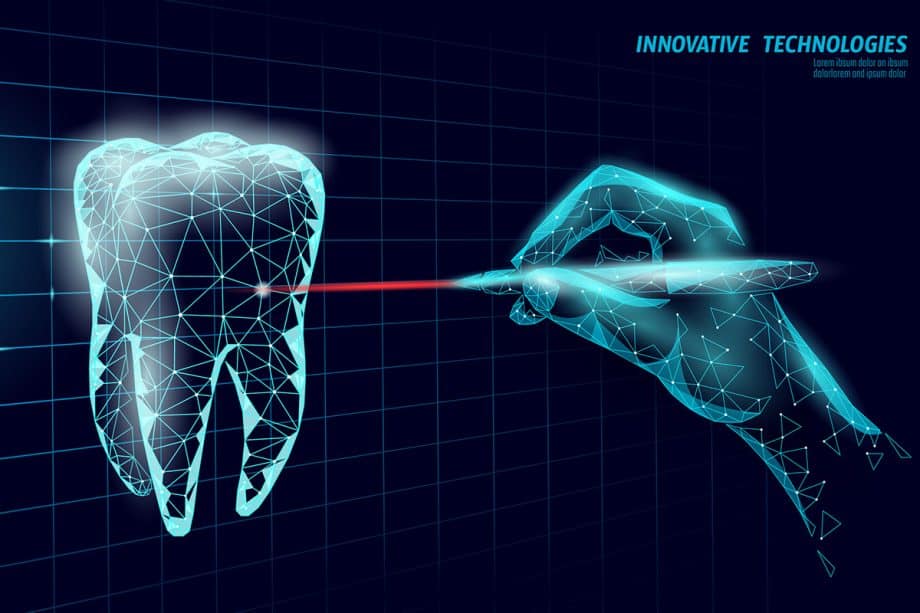Laser dentistry provides many benefits for doctors and patients alike. Lasers perform dental procedures with less discomfort, better healing times, and a lower chance of infection.
This blog will explain how laser dentistry works and how we use this high-tech equipment to improve your care.
How Do Dental Lasers Work?
A dental laser is essentially a highly focused beam of light. An ordinary beam of white light, such as a flashlight, contains light waves with many different wavelengths. A flashlight diffuses its energy and gives off a gentle warmth. In contrast, a laser is a tighter, more powerful beam with wavelengths that line up together, producing a narrow, bright light. This light contains enough focused energy to act on hard and soft tissue.
Dental Applications of Laser Technology
Lasers can perform many functions instead of a scalpel or drill. They can treat tooth decay and gum disease, take biopsies and remove lesions, and perform frenectomies, among many other applications.
Tooth Decay
Lasers can help dentists prepare teeth for fillings and crowns. The laser kills and removes bacteria without the need for a drill. The procedure is more comfortable for the patient and requires minimal local anesthesia.
Reshape Gum Tissue
Lasers are also useful in soft tissue applications. Laser gum contouring results in better results, fewer infections, and less swelling.
Frenectomies
Lasers can easily treat lip-tie or tongue-tie in patients of all ages.
Biopsies or Removing Lesions
Lasers can help to test abnormal areas and remove problem spots.
Treat Gum Disease Infection
Lasers can help treat underlying gum disease infections by cleaning and sanitizing the gums and periodontal pockets.
Dental Implant Placement
Implant placement is easier and has fewer complications when using lasers. Dentists can use lasers during implant procedures, reducing blood loss, infection, and post-surgical discomfort.
Advantages of Laser Dentistry
Lasers reduce the need for dental drills and scalpels, making procedures more comfortable. They reduce bleeding and swelling both during and after procedures. Since they sanitize tissue, they cut the risk of infection and reduce healing times. They can speed up dental treatment, and they avoid damaging healthy tissue.
Frequently Asked Questions About Laser Dentistry
Does laser dentistry hurt?
Laser dentistry is considerably more comfortable than traditional procedures. You will often not need a local anesthetic since lasers also produce a pain-relieving effect.
Does laser dentistry have any side effects?
Laser treatment is safe and has fewer side effects than traditional treatment. Occasionally, you may experience discomfort or itching after laser treatment, but it should pass within a few days.
Call Integrated Dentistry
We use dental lasers to make our procedures safer, faster, and more comfortable. If you want to know what lasers can do to improve your dental experience, please call our Bentonville, AR, office at 479-333-1300.

